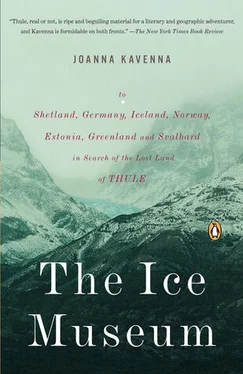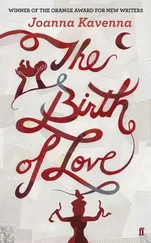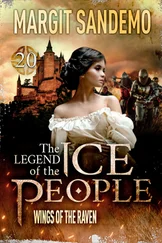Burton decided to leave the tattered old banner hanging above Iceland—keeping Ultima Thule, A Summer in Iceland as the title of his book. But he had removed the sense of exclamation to the phrase. Ultima Thule was something else to Burton: it was the real country of Iceland rather than a northern dreamworld.
HE KEPT UP HIS ‘ULTIMA THULE’ HABITS OF REFUSING INVITATIONS, SHIRKING INTRODUCTIONS; AND DECLINED INTO THIS ‘LET ME ALONE AND DON’T BOTHER ME STATE. . . .’
ULTIMA THULE, BEING THE THIRD PART OF THE CHRONICLES OF THE FORTUNES OF RICHARD MAHONY, HENRY HANDEL RICHARDSON (PSEUDONYM OF ETHEL FLORENCE LINDESAY RICHARDSON, 1870-1946)
When I was a teenager my family spent holidays in the Lake District, travelling there each summer for two weeks in a stone cottage near Windermere. I pretended to hate it, sinking with feigned boredom into the car, complaining about the length of the journey. Secretly I was delighted; I swam in Lake Coniston, walked through Grisedale Forest and boated on Windermere. I watched the reflections of trees glistening on the clear waters of the lakes. I splashed into streams, swam against the cold current, drinking the water when it swilled into my mouth, clear cold water from the mountains. I camped in the garden of whatever small stone cottage we were renting that year, to listen to the sounds of the night stillness and the drum of rain on the roof of the tent. I would wake my brother early, and we would run across a field towards Windermere, to watch the wash from the speedboats slapping against the sand, to stand on the beaches staring out at the cloudy skies of summer.
As we returned each year to the lakes, the landscape came to act as an aide-mémoire, each mountain and lake conjuring memories of former years, and I wondered what would happen in a landscape stripped of personal associations. I was an irreligious child, finding it impossible to believe in any force beyond the human, but I longed for some sort of intense experience, some epiphanic moment. For purely touristic reasons, I wanted to be struck by a sudden sense of a vast transcendent force, something overwhelming. I wanted to understand the sensation that seemed to have gripped most of the writers I enjoyed at the time: Wordsworth, Coleridge, Blake and Clare. Finding nothing of the sort in churches or treatises, I wondered about pure pantheism, the rapturous contemplation of the creative spirit in nature—the spirit in the stones, divinity revealed in the breathing of the trees and so on. I wondered what would happen if I stood alone in empty space, looking at the vastness of the rocks. I remembered the fear instilled in me as a child by the shaking of trees in evening winds, as I stood ringing on the door of my parents’ house, having been dropped off by a friend’s parent in a car. I would glance along the street towards these forms, bowing and nodding in the wind, their branches seeming to reach towards me. Then the light of the doorway would extend towards me, I would be scooped into the warmth of the house, and the fear would fade.
Fairytales were played out in rustic places, dark forests, country villages, and Tolkien’s The Lord of the Rings , which I loved as a child, was a mournful pastoral lament, creating an idealized Europe of green meadows and rushing mountain rivers, where small hob-bits lived in holes in the ground, and tree herders spoke, and the enemy came as a technocrat, damming rivers and waging wars. There were dozens of gentle idylls in children’s books: the Swallows and Amazons camping in the dales, their imaginations as rich as the view, naming the rocks after legendary mountains, finding treasure islands and pirates. Narnia was the unchanging forest, the Arcadia in the cupboard, or in the attic of the city house. There were darker Arcadias: the warped pastorals of the Susan Cooper books, which had been my favourites for a time, with their Arthurian world where pagan festivals bred surreal dreams—in one of the most febrile of the books a wicker figure thrown into the sea appears in a vision to one of the children.
In these books the fictional worlds were beyond the grasp of adults, except the occasional enlightened guardian, who understood the secret and turned out anyway to be a reincarnation of Merlin. They were gently didactic, adult writers trying to explain to children that later they might lose the ability to imagine themselves away from reality, or they would no longer have the time to. Later they would be forced to distinguish between the actual and the created; it would be a necessary part of their commitment to the world, distinguishing the plausible and rational from the insane, the eccentric, and the unfortunate. The rural Arcadias represented a state of innocence, a time when the individual could live free of the fetters of society, innocent of the realities of adulthood. The realm of experience—the world of adults, where rules were imposed on the imagination—was intertwined symbolically with the city. It was like the world of William Blake, in Songs of Innocence and Experience , which I read as a teenager—poems that pretended to be songs for children, but which spelt out the division between Arcadia and society in rustic images. Blake saw the country-city division less as a question of physical location and more as high symbolism, a supreme expression of the battle of the human spirit against the restrictions of society. For Blake, the countryside was less the place for a pleasing picnic and more a symbol of freedom from the fetters of convention, from the stultifying effects of orthodoxy, represented by ‘mind-forg’d manacles’ of the city. The Songs of Innocence and Experience divided the life of the spirit into states of freedom from social restrictions—states of innocence—and states of subjection—states of experience. London was where the individual was enslaved, ‘bound with briars.’ Emptiness and silence were freedom because they were devoid of the clamour of other voices telling you how to behave, what not to do, what to be.
After childhood, I moved only from city to city, moving throughout my twenties from London to New York, to Paris, to Berlin, to Oslo, to London again. I was propelled by an obsessive urge to experience novelties: new places, new cities. For nearly a decade, I was unable to stay in any one place for more than a few months. I became addicted to the absolution of the aeroplane, the interim state of nothingness a mile above the sea, and the immediate immersion in a new environment at the other end of the flight, the mundane made interesting by virtue of its foreignness. I went from New York—stark skyscrapers, glass and concrete, the constant motion of cars beneath—to London, a riot of styles, representing a course of urban history, buildings built, ruined, burned, bombed, reconstructed; hills which had become estates; pastoral glades transformed into yuppie suburbs, the spirit of the place so Protean as to be crazed and schizophrenic. From London to Paris to Berlin to Oslo. The cities varied in endlessness—for relentless suburban sprawl London licked competitors; every sketchy parade of shops which seemed like the end of the city would be followed by another bank of interwar houses. Every year I was forced by a sense of pressure behind the forehead back to London, and then I would leave again shortly afterwards.
The city always drew me back, a city in one country or another. I was compelled by the show, the constant motion, the bizarre energies of colliding humans, crammed together in a lunatic experiment. Every sound represented a technology of the last century—the grinding of cars, the soprano whine of the plane engines, falling towards Heathrow, the bleeping of pedestrian crossings, the scream of burglar alarms, the sounds of stereos, pumping a bass-beat through car windows, through the walls of Victorian houses, never meant to withstand insistent thumping drum and bass. In a flat overlooking the Westway and the Hammersmith and City line, I watched the empty carriages, lit against the darkness, pulling into the station.
Читать дальше












